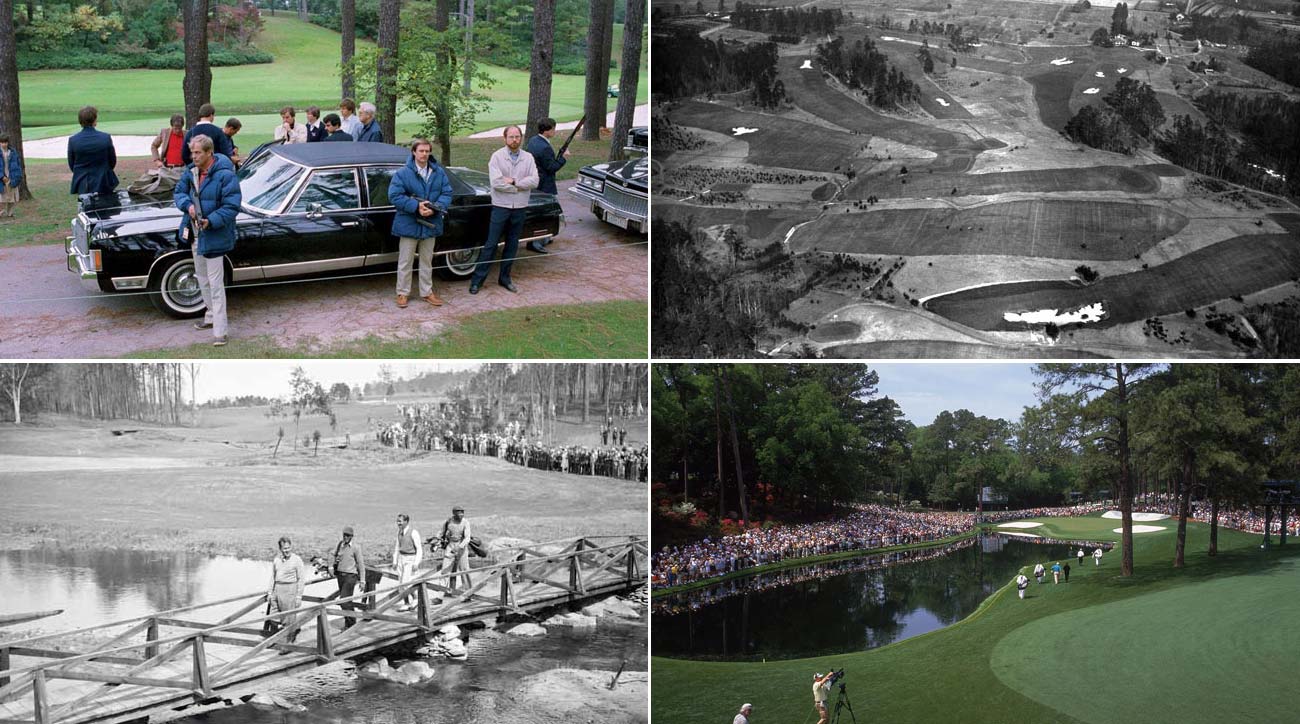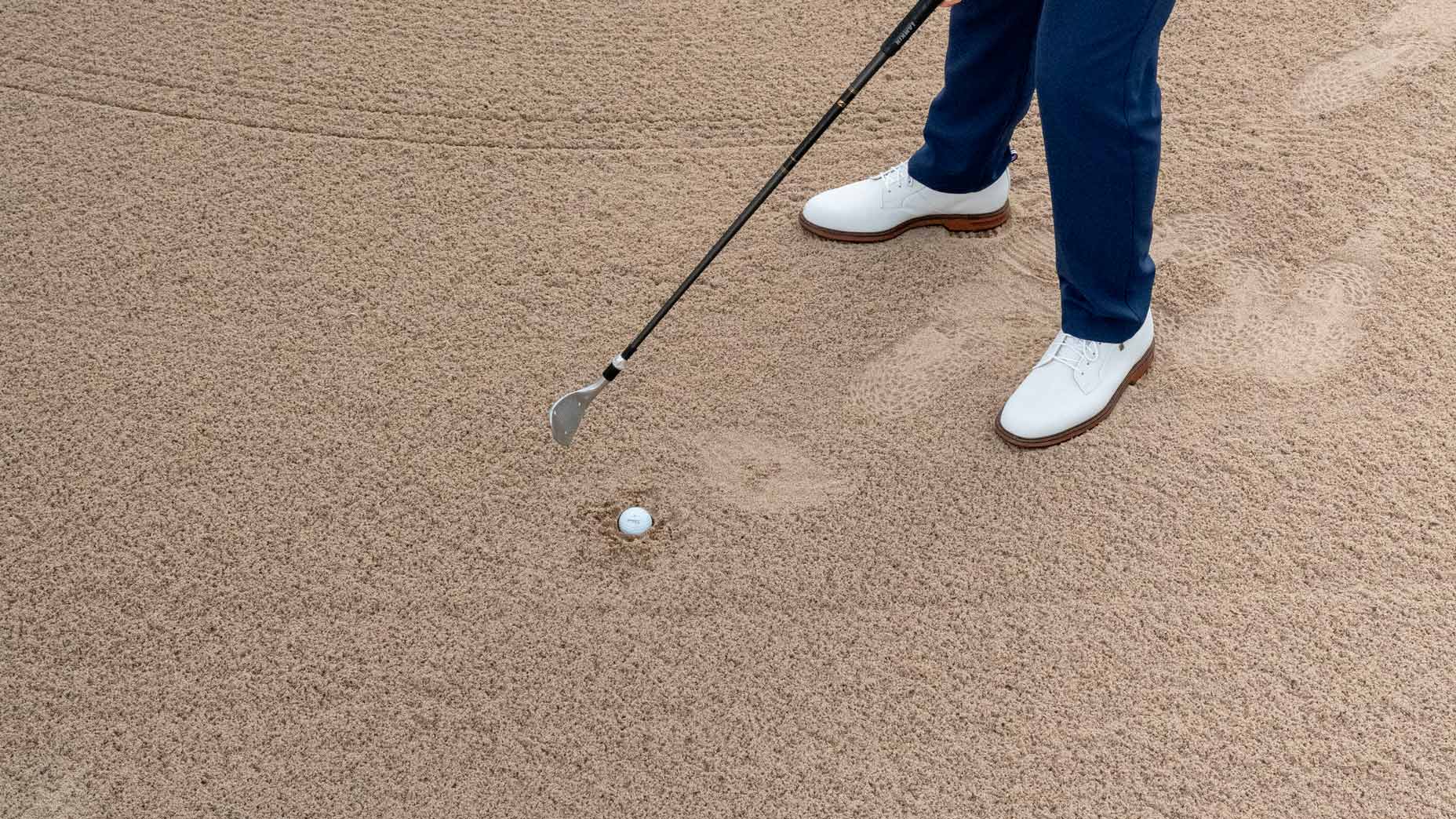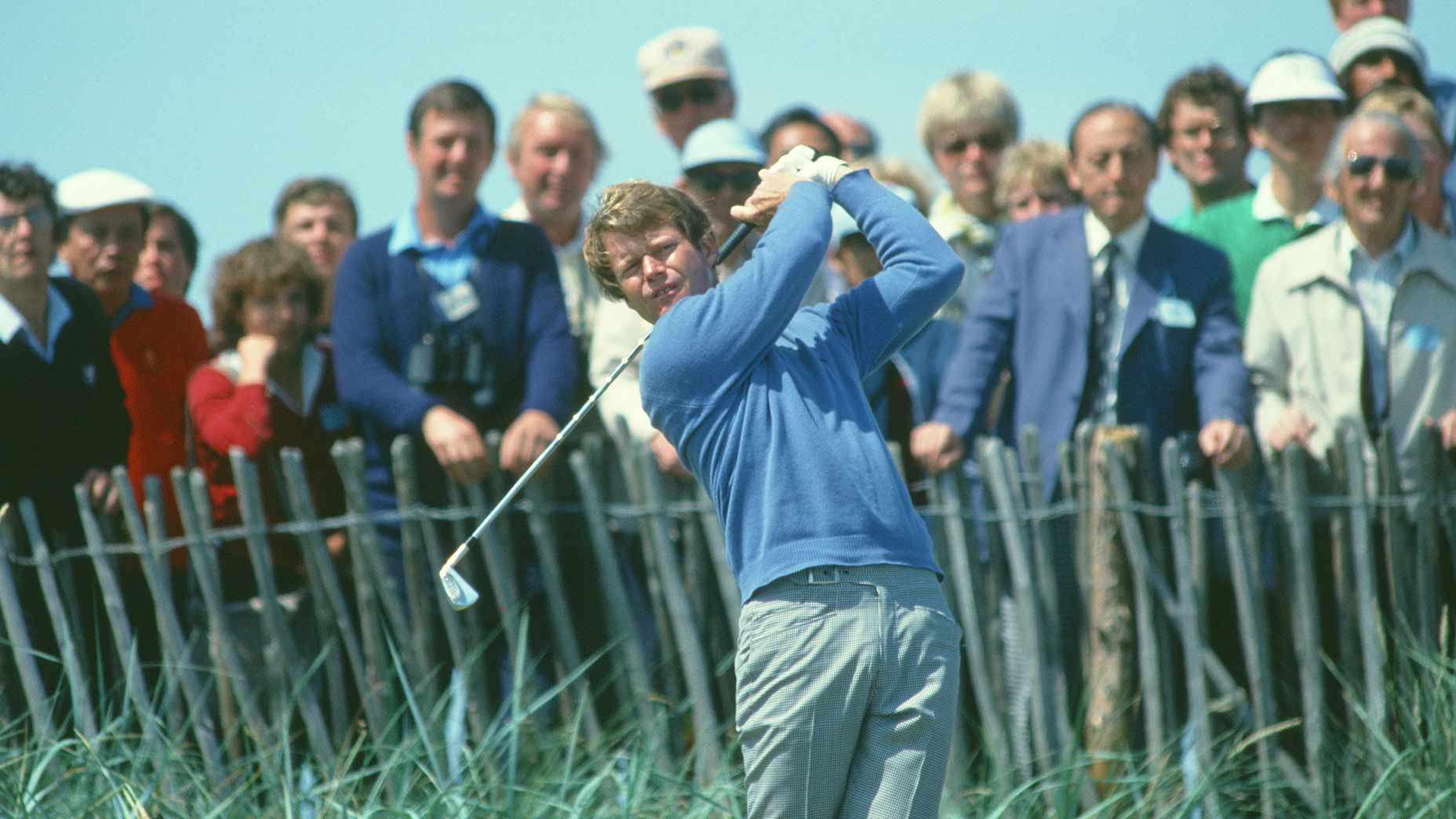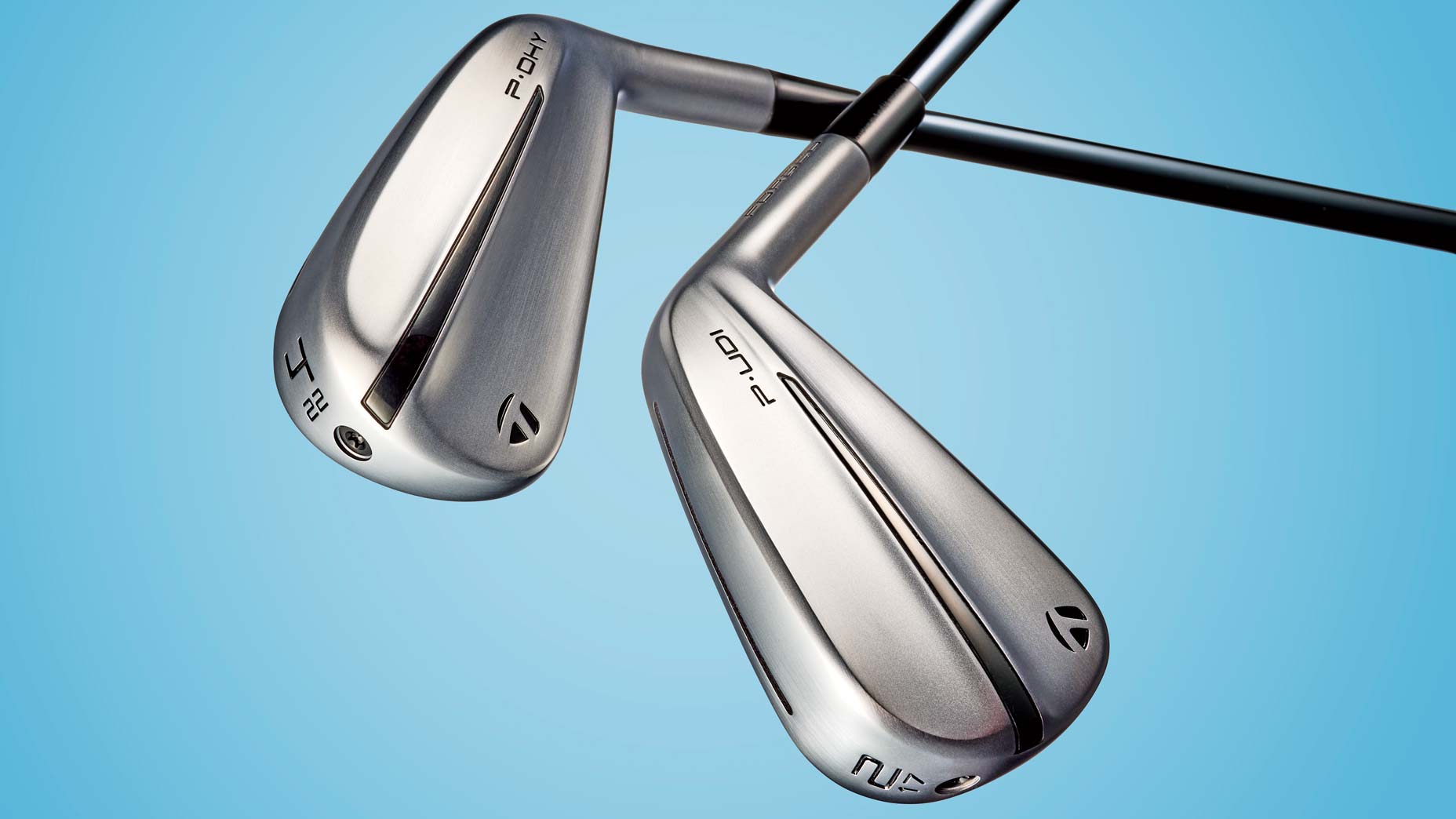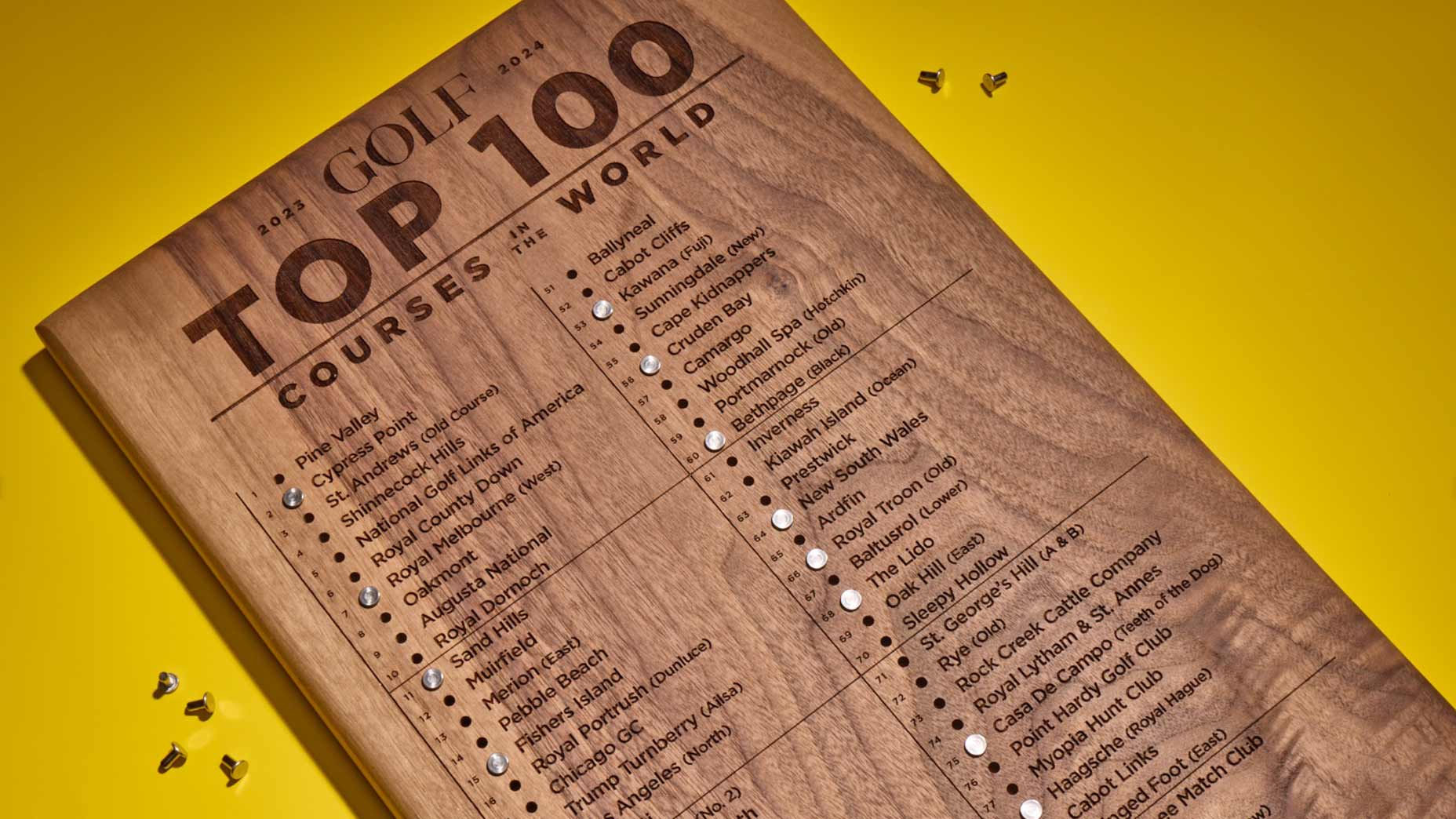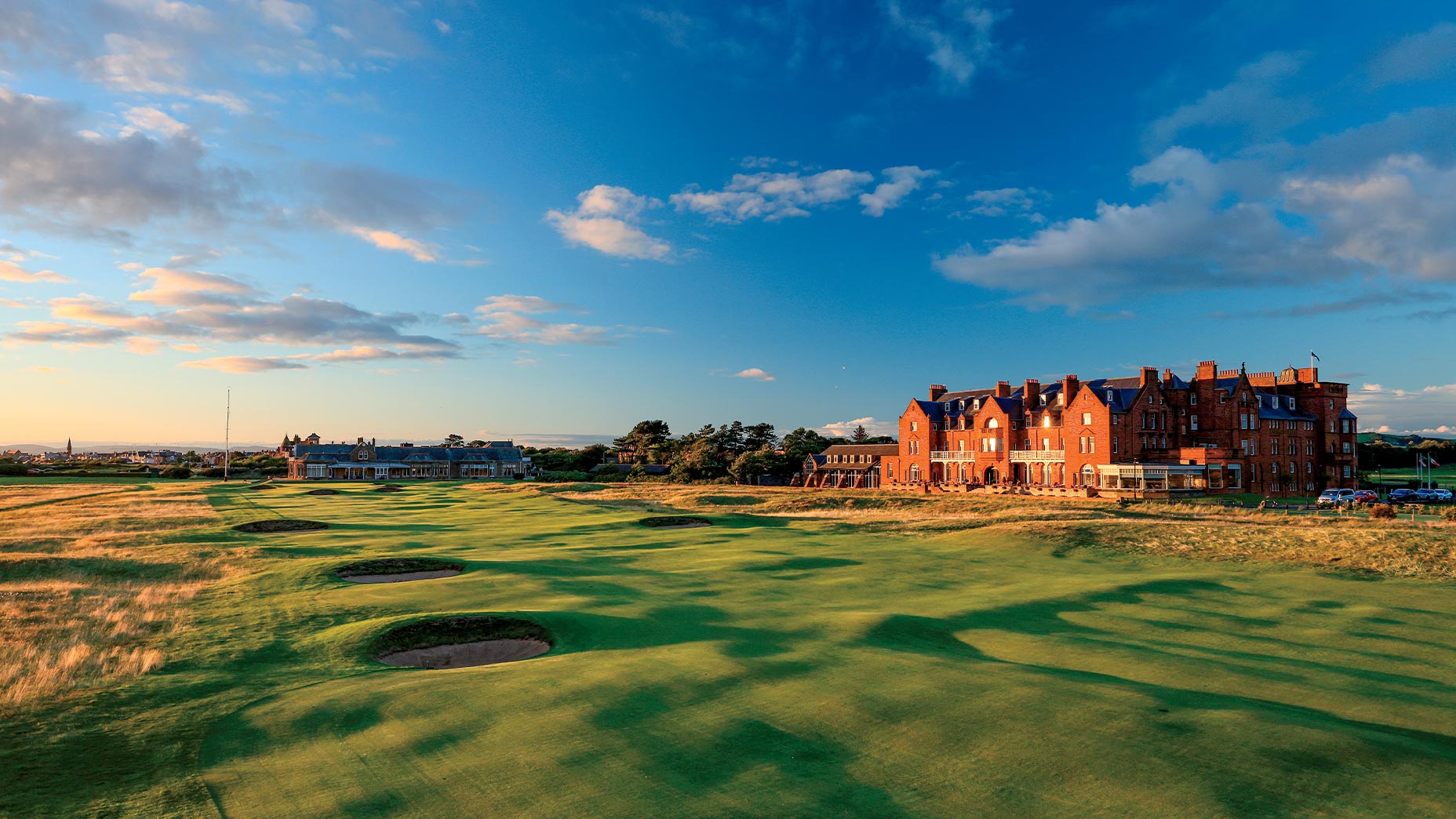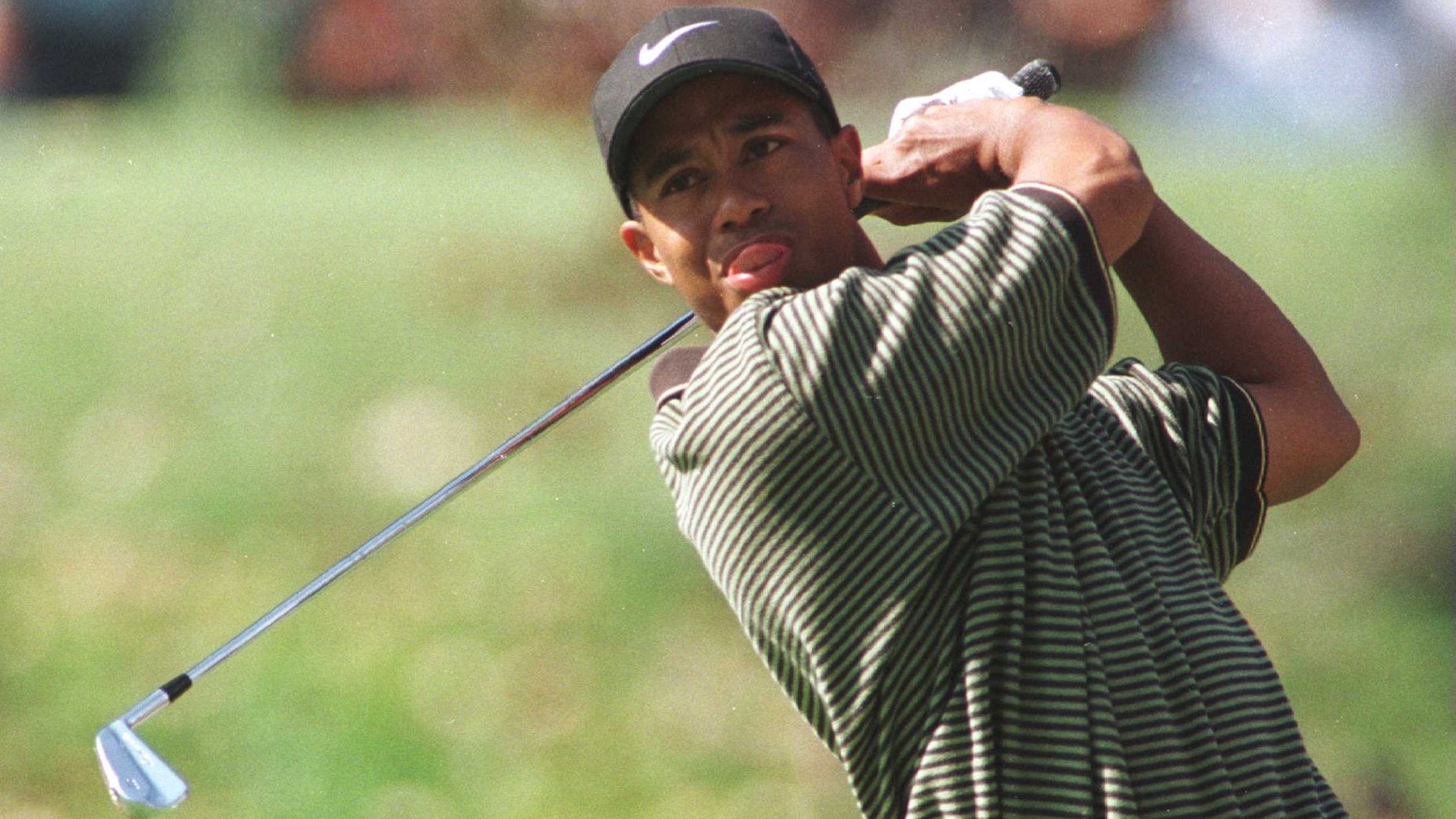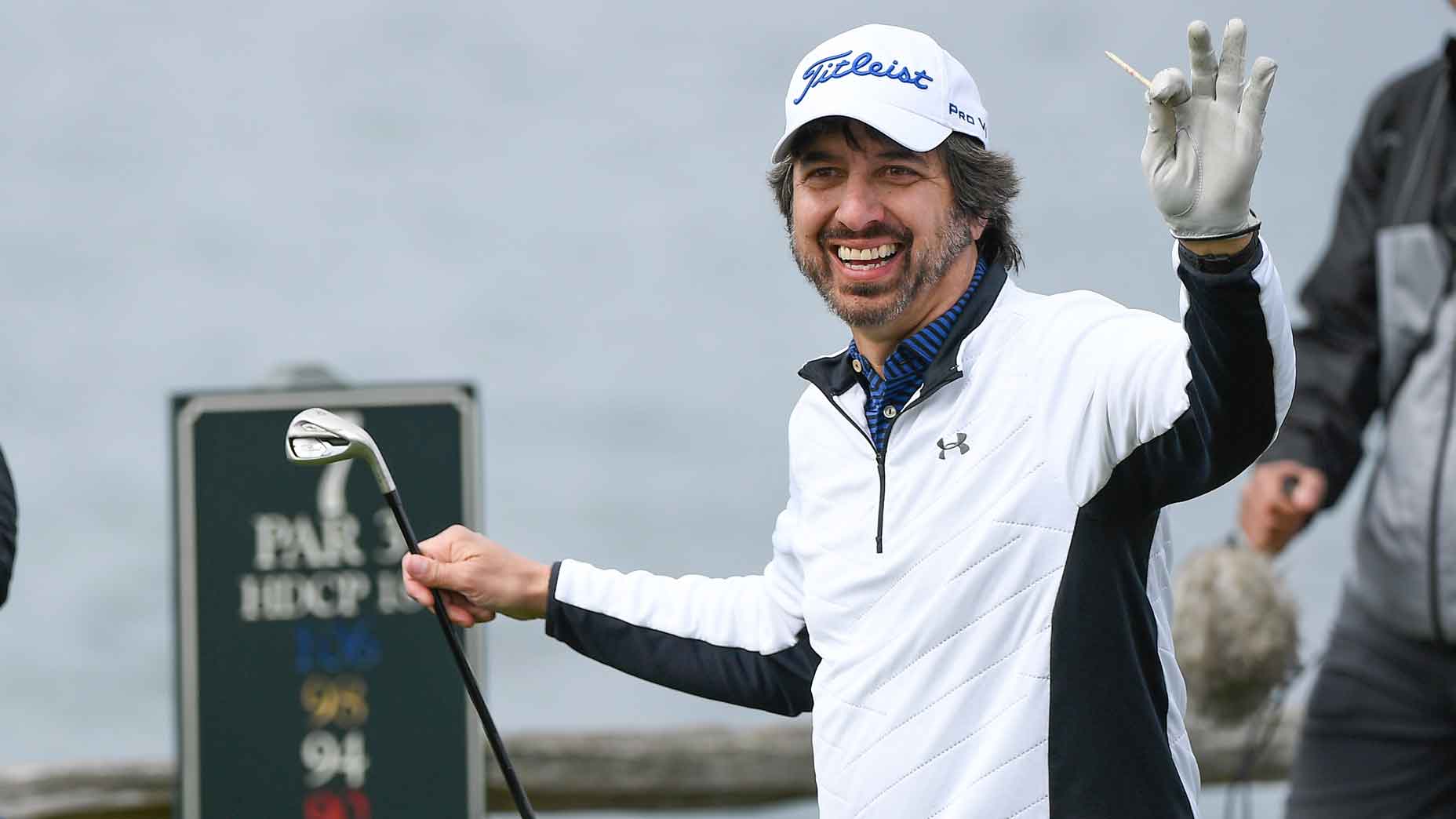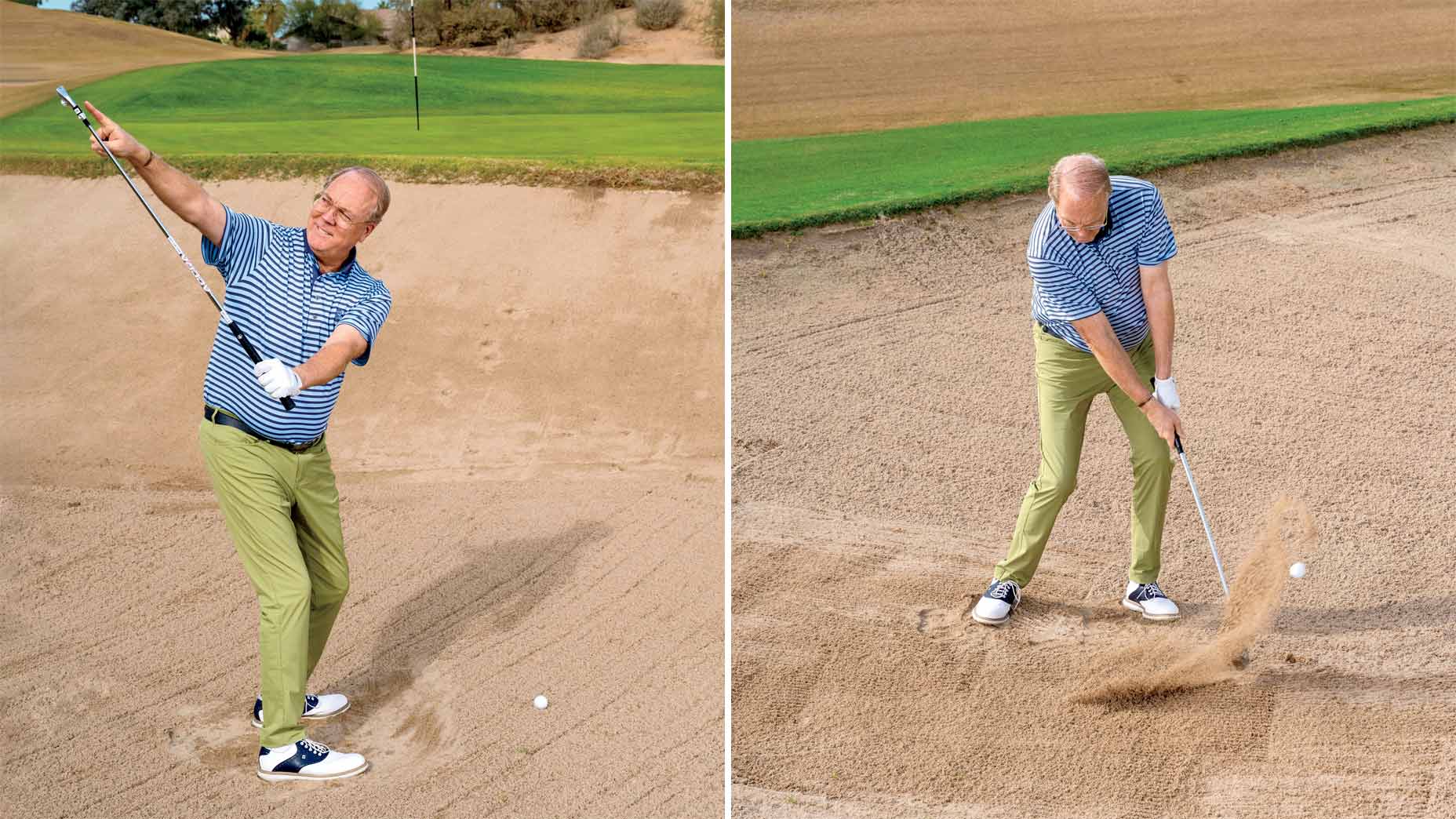Carl Jackson, Augusta National’s most famous caddie, tells all
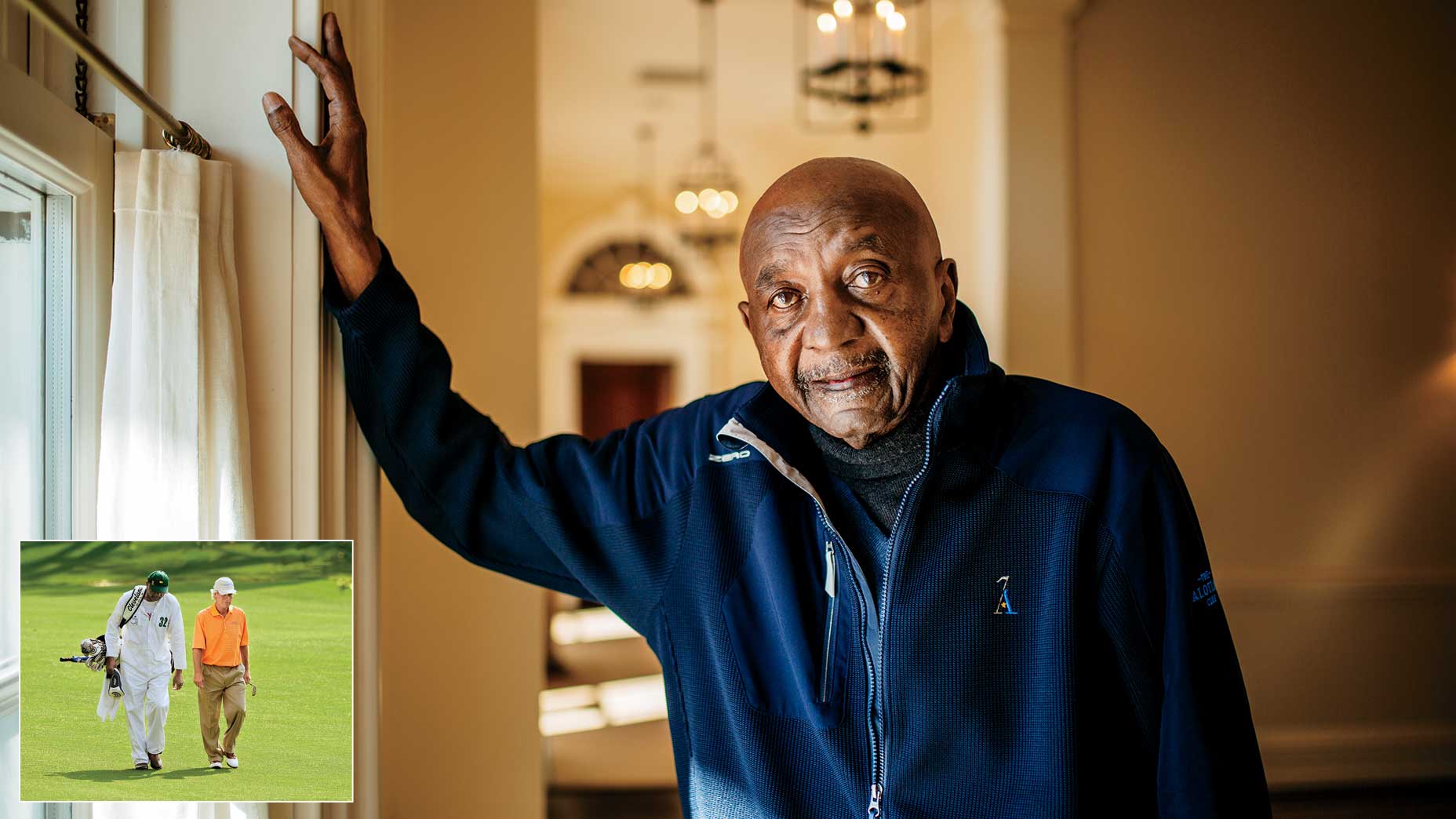
Carl Jackson started caddying at Augusta National when he was 13. Inset: Jackson and Ben Crenshaw in 2011.
TERRA FONDRIEST/Inset: Augusta National via Getty
Aside from being one of the game’s most fabled playgrounds, Augusta National Golf Club is a well-groomed workplace, where people punch the clock and earn their keep. Take Carl Jackson as a case in point. The second of nine children, born and raised in Augusta, Jackson started caddying at Augusta National in 1960, when he was 13, and worked his first Masters the following spring. He kept up that tradition for more than half a century, going on to set the record for most appearances by a caddie — 54 — in the event.
To fans, Jackson is best known as the man on the bag for Ben Crenshaw’s two Masters wins, in 1984 and 1995. But he is also a living connection to an era when every competitor at Augusta had a club caddie at his side. That was the rule, implemented at the inaugural Masters, in 1934, and upheld until 1983, when players were first permitted to bring their own loopers. Most did.
By that time, Jackson had moved to Arkansas, where he still resides and, at age 76, works as caddie master at the Alotian Golf Club, a private retreat founded by Warren Stephens, son of Jackson’s longtime employer and former Augusta National chairman, Jack Stephens. On the 40th anniversary of the caddie policy shift at the Masters, we asked Jackson about his early memories of Augusta, his connection with Crenshaw and his sense of what has — and hasn’t — changed since that watershed tournament in 1983.
GOLF: How did you get your start as a caddie?
Carl Jackson: I was 11, but it wasn’t at Augusta National. It was at Augusta Country Club, next door. I needed to make money for my family. So, after school, if the weather was good, I’d go out there and shag balls for the members. I could make anywhere from a dollar to two dollars doing that. But one day, I went out there and there was nothing happening. I started walking home, and right then the caddie master from Augusta National was going by. He stopped and said they were busy and needed caddies. Next thing you know, I was making six dollars for 18.
Were you the youngest caddie in the yard?
By then, I was 13, going on 14, which was young enough to cause some problems. I remember being in a group with [Augusta chairman] Cliff Roberts, Jack Stephens and President Eisenhower, and Eisenhower asked me, “Son, why aren’t you in school?” Jack Stephens got wind of that and told the chairman, “Let him stay. Don’t worry. I’ll see that he gets his GED.” And I did.
You were also a quick enough study to work your first Masters the next spring.
That was for Billy Burke. He was an older man at that point, a ceremonial golfer. Some years later, I got with Bruce Devlin and we got a fourth-place finish. I guess you could say I knew the course pretty well.
Your most famous partnership was with Crenshaw. How did that come about?
In the 1970s, Ben had been out [at Augusta] a couple times as an amateur, and Jack Stephens thought we’d be a good pair. Ben was reluctant because he liked the caddie he had, but he gave me a chance and we finished second our first time out.
You and Crenshaw won in ’84, but it’s the emotional win in ’95 that a lot of people remember best. His mentor, Harvey Penick, had just died and Crenshaw had been struggling. You gave him a swing tip. What did you say to set him straight?
All those years with Ben, I wasn’t just standing around watching. I was paying attention. What I saw was in his setup. It looked to me like he was reaching for the ball, almost like he was playing hockey. I mentioned that to him.
Instant cure?
I don’t like to pat myself on the back about anything. I’d rather have the player say it himself. Ben has talked about it. He said after two or three balls, he knew.
By then, you were one of the few homegrown caddies still working the Masters, because Augusta had started letting players bring their own caddies. Was that a change you foresaw?
You could feel the change coming. Some of the seasoned players, like Tom Watson and Jack Nicklaus, they’d been saying they wanted to bring their full-time caddies for a while. But Cliff Roberts wouldn’t allow it. Then Mr. Roberts passed in 1977. And then in 1982, there was a rain delay in the tournament. They didn’t have a lot of room in the bag room, so the players’ bags all got stacked up on top of each other and didn’t have a chance to dry out. The next day, all the players’ clubs were still wet. But not Ben Crenshaw’s. They were not wet.
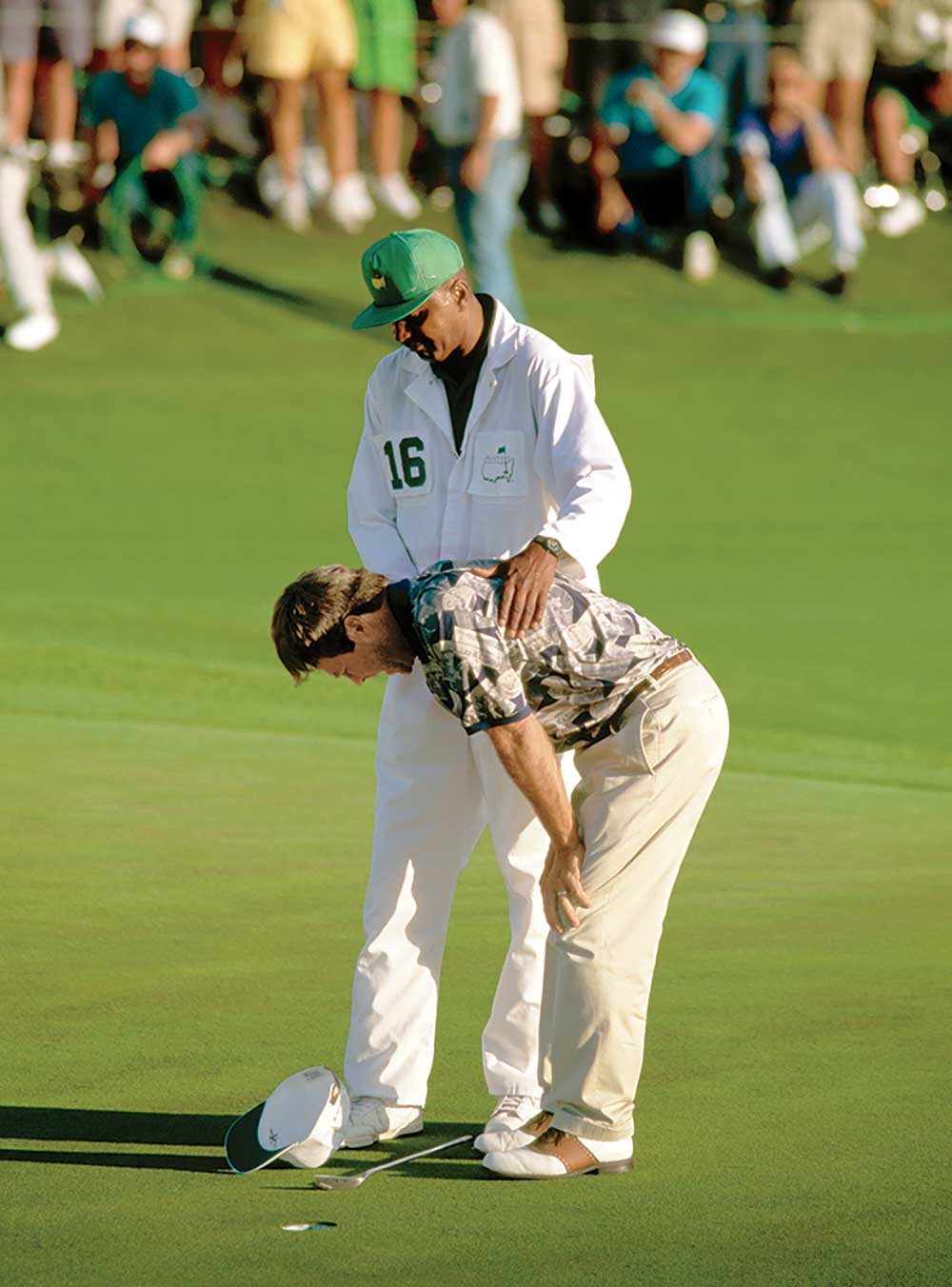
Why not his?
I also worked for the golf shop as a cart man. They had merchandise back there in that little room, but they trusted me. I had a key, so I went in there, dried Ben’s clubs off and turned his bag upside down. The other caddies didn’t have that chance. On top of that, the next day the caddies all expected a late-morning start, and it turned out being an early morning start. I was there early because I’d woken up early, and I was excited to work. But a lot of caddies weren’t there. I think it was an embarrassment to the club. It was sort of the straw that broke the gate open.
For a caddie, how important was Masters week financially? Could it make or break your season?
Different guys paid differently, but you got a salary of about $400 or $500 a week, plus a percentage of the winnings. So, if you got a top 10, that was a nice bonus. You might end up with $1,000 or even $1,200 for the week.
The club caddies must have been upset about the change.
Personally, it didn’t really affect me because I was already working [as a personal assistant] for Jack Stephens, and Ben kept having me back for the Masters. But there was some who was angry. I remember one of our top caddies, he was well-educated too. He talked to me after the fact and said, “Carl, I came to the conclusion that a lot of these players would rather lose with a white caddie than win with a Black caddie.” Now, everybody is going to have a reason or excuse for what happens. But I think about it now. You don’t hardly ever see a Black caddie on the Tour these days.
How often did you get to play Augusta yourself?
They had a day at the end of May when the employees got to play. But there was one time when I played as a guest of Jack Stephens. I had been caddying for him since 1961 and working for him in Arkansas since 1972. One particular morning in the 1980s, the week after the Masters, he called me and said, “Carl, we’re going to play golf today.” And I was going to be his guest. To my knowledge, a Black man had never played as the guest of a member at Augusta. When we got there, club management was reaching out to the chairman. They thought that it had to be approved. But we all went to the first tee — me, Mr. Stephens, the head pro and one of his assistants. It was like someone threw a brick in the chicken house. A bunch of caddies and other employees came running out to watch. I played the back tees with the two pros. [Off the first tee, they] both knocked their drives over the trap. And I got up and knocked mine over the trap too. That must have gotten one of the biggest roars I ever heard at Augusta.
Did you have your own caddie for that round? If so, what was that like?
I did. Bernard Dent. Jim Dent’s nephew. Jim Dent was from the Hill, too, the same neighborhood I grew up in.
Good thing you had him to help you with the greens.
I could handle myself okay out there.
No Masters rookie has won since Fuzzy Zoeller in 1979. Some people think the caddies are part of the reason — they just don’t have the same amount of local knowledge. Do you think there’s any truth to that?
I watch every Masters. I’ve been going there every year, except for Covid. I see mistakes coming down the final stretches, and I think part of it is local knowledge. The greens are the defense of Augusta National. That’s the secret to it.
Any particular mistakes you see?
There are a few spots on all of the greens. It really just depends on the individual what mistake they’re going to make.
Does it ever make you want to get back out there on the bag?
Ben and I had our last Masters together in 2015. I still go out there with him for the Par-3 tournament, but we’re no longer participants for the week. We had a good run together. We were in the mix almost 10 or 11 times. We were successful. But I had my time. Now the younger guys get to have theirs.

